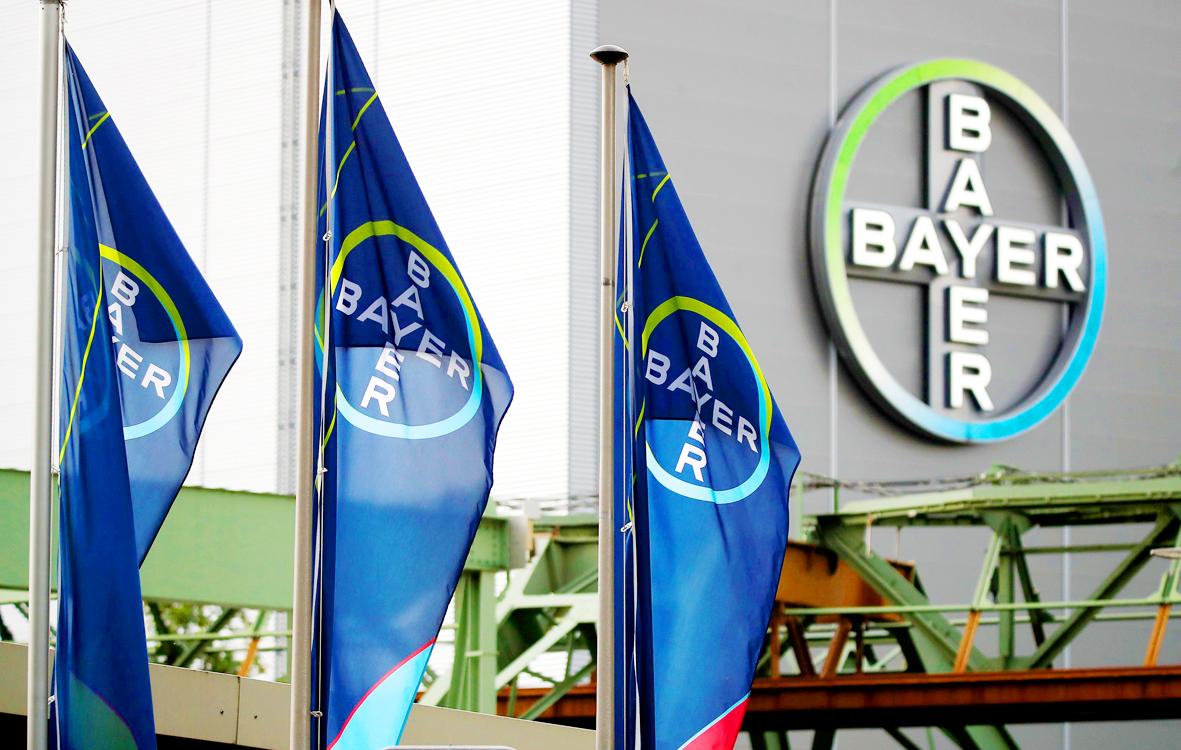A federal judge on Wednesday last week refused to approve Bayer AG’s US$650 million settlement of claims by about 2,500 US cities, counties and ports over pollution from polychlorinated biphenyl (PCB).
US District Judge Fernando Olguin in Los Angeles said that the broad scope of the release of legal liabilities for Bayer in the settlement was a problem.
The judge said that he could not approve an accord that shielded Bayer from claims by people or entities not included in the lawsuit.

Photo: Reuters
The ruling is a blow to Bayer’s efforts, in a US$12 billion proposal that it announced in June, to resolve lingering litigation exposure that the company inherited when it acquired Monsanto Co in 2018.
Bayer would work with the plaintiffs to resolve Olguin’s concerns, it said in an e-mailed statement, adding that it plans to file a revised agreement before the end of the year.
The ruling is “a surprise setback for Bayer,” Susquehanna Financial Group litigation analyst Tom Claps said in an e-mail.
While Olguin’s concerns are “manageable,” Claps said, Bayer is “still facing other PCB litigation nationwide,” including more possible lawsuits from states.
A group of 21 attorneys general, including those from California, New Jersey, Massachusetts and Michigan, had raised concerns with the judge that the settlement might block them from pursuing their own legal actions against Bayer.
Cities — including Seattle; San Diego and Oakland, California; and Portland, Oregon — had sued Monsanto, the exclusive maker of PCBs used to cool heavy-duty electrical equipment for more than 40 years, prior to the acquisition by Bayer, which left it to deal with the pollution problems tied to the chemicals.
Separately, a federal judge in San Francisco this month lifted a pause on suits alleging that Monsanto’s Roundup herbicide causes cancer.
With thousands of cases still unresolved even after Bayer announced a settlement plan in June, US District Judge Vince Chhabria set a Jan. 25 hearing to get trials restarted.
Bayer lost three Roundup trials in 2018 and last year with average awards of almost US$50 million per plaintiff that sent its stock into a downward spiral.
The company yesterday said that it raised US$1.6 billion by selling most of its stake in Elanco Animal Health Inc, shoring up cash as it faces legal bills over Roundup.

Intel Corp chief executive officer Lip-Bu Tan (陳立武) is expected to meet with Taiwanese suppliers next month in conjunction with the opening of the Computex Taipei trade show, supply chain sources said on Monday. The visit, the first for Tan to Taiwan since assuming his new post last month, would be aimed at enhancing Intel’s ties with suppliers in Taiwan as he attempts to help turn around the struggling US chipmaker, the sources said. Tan is to hold a banquet to celebrate Intel’s 40-year presence in Taiwan before Computex opens on May 20 and invite dozens of Taiwanese suppliers to exchange views

Application-specific integrated circuit designer Faraday Technology Corp (智原) yesterday said that although revenue this quarter would decline 30 percent from last quarter, it retained its full-year forecast of revenue growth of 100 percent. The company attributed the quarterly drop to a slowdown in customers’ production of chips using Faraday’s advanced packaging technology. The company is still confident about its revenue growth this year, given its strong “design-win” — or the projects it won to help customers design their chips, Faraday president Steve Wang (王國雍) told an online earnings conference. “The design-win this year is better than we expected. We believe we will win

Chizuko Kimura has become the first female sushi chef in the world to win a Michelin star, fulfilling a promise she made to her dying husband to continue his legacy. The 54-year-old Japanese chef regained the Michelin star her late husband, Shunei Kimura, won three years ago for their Sushi Shunei restaurant in Paris. For Shunei Kimura, the star was a dream come true. However, the joy was short-lived. He died from cancer just three months later in June 2022. He was 65. The following year, the restaurant in the heart of Montmartre lost its star rating. Chizuko Kimura insisted that the new star is still down

While China’s leaders use their economic and political might to fight US President Donald Trump’s trade war “to the end,” its army of social media soldiers are embarking on a more humorous campaign online. Trump’s tariff blitz has seen Washington and Beijing impose eye-watering duties on imports from the other, fanning a standoff between the economic superpowers that has sparked global recession fears and sent markets into a tailspin. Trump says his policy is a response to years of being “ripped off” by other countries and aims to bring manufacturing to the US, forcing companies to employ US workers. However, China’s online warriors